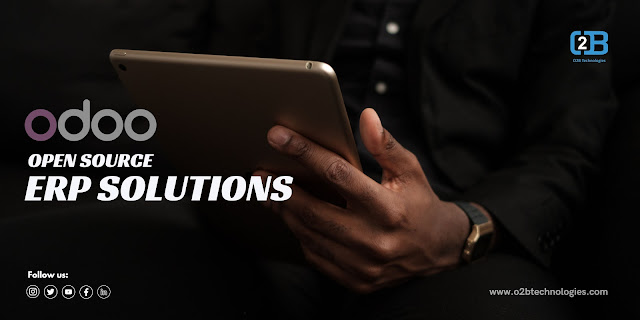Open source ERP solutions
Open source software is open because its source code is
accessible to the general public. The code may be examined, modified, and
distributed in new iterations or branches by developers. Although the software
is free to use, it is frequently impracticable to deploy it without paying
implementation or modification costs in order to make it work for your
business. Open
source licenses come in different forms, but many enable an infinite number
of users. Freeware often refers to closed-source software applications that are
offered to consumers for no cost, such as Adobe Acrobat or Skype.
On the other hand, closed source software, sometimes known
as proprietary software, is the opposite of open source software. The source
code cannot be seen or edited by users or developers since it is customarily
licensed, either through a perpetual license or by subscription fees. The
majority of the top ERP solutions are closed source. Compared to closed source
ERP (Enterprise Resource Planning) systems like Microsoft Dynamics, Oracle
NetSuite, QuickBooks, Xerox, Zoho, and Tally, open source ERP (Enterprise
Resource Planning) solutions like Odoo provide a lot of benefits and are way
more advantages as seen with Odoo.
The fact that open source ERP solutions are frequently more
affordable than closed source systems is one of their main advantages. This is
so that businesses may customize and modify open source ERP software to meet
their unique needs without having to pay license costs. Furthermore, there are
frequently more users and developers of open source ERP systems, which implies
that there are more resources accessible for support and customization.
Open
source ERP solutions can provide greater flexibility than closed source
systems, which is another benefit. This is due to the ease with which open
source ERP software may be altered and tailored to meet the particular
requirements of a firm. Contrarily, closed source systems frequently demand
that companies adhere to a particular set of features and capabilities.
Businesses with particular needs that the closed source system cannot satisfy
may find this to be restricting. Additionally, compared to closed source
systems, open source ERP solutions are typically more secure and open. This is
because open source ERP systems' source codes are publicly accessible, enabling
unbiased third parties to audit and assess the system's security. Contrarily,
closed source systems are proprietary and their source code is not accessible
to the general public, which might make evaluating their security challenging.
In addition, the user and development communities for open
source ERP systems are often more vibrant. The availability of extra resources
for support, adaptation, and the creation of new features follows from this.
For companies that want to keep on top of the newest features and technologies,
this is extremely crucial. The fact that open source ERP solutions are
frequently more scalable than closed source systems is another benefit. This is
so that it may be readily adjusted to fit a business's growth and changing
demands. Open source ERP software is intended to be adaptable. Closed source
systems, on the other hand, may have more inflexible frameworks that might make
it challenging to scale up or make adjustments.
And last, compared to closed source systems, open source ERP
solutions are frequently more appropriate for small and medium-sized
organizations. This is due to the fact that open source ERP software is
frequently more cost-effective and adaptable, making it a better fit for companies
with specific demands and restricted resources. Finally, compared to closed
source ERP systems like Microsoft Dynamics, Oracle NetSuite, QuickBooks, Xerox,
Zoho, and Tally, open source ERP systems like Odoo have a variety of
advantages. Most often, they are more affordable, adaptable, transparent, safe,
scalable, and well-suited for small and medium-sized businesses. There is a
vibrant user and developer community for open source ERP systems, and there are
more resources available for support, customization, and the creation of new
features. As a result, it is a superior option for businesses searching for a
practical and affordable response to their demands. And when you avail open
source ERP services with o2btechnologies, be sure to get the best of the
industry.



Comments
Post a Comment